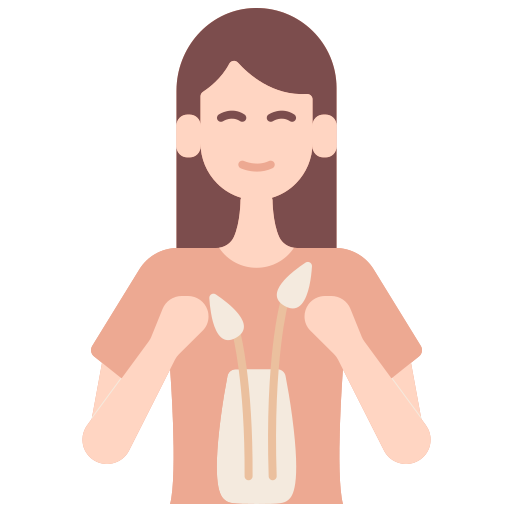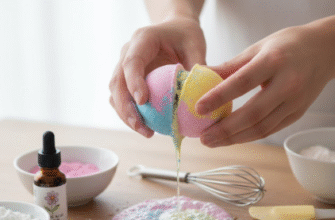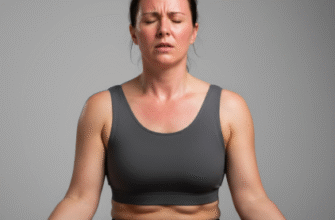From the moment we enter this world, touch is one of our primary ways of communicating, connecting, and feeling safe. A gentle hug, a reassuring hand on the shoulder, or the simple act of holding hands conveys volumes without a single word. In our increasingly digital and sometimes isolating world, the profound psychological importance of physical contact is often overlooked. Massage, as a structured and intentional form of touch, taps directly into these deep-seated needs, offering a wealth of benefits that go far beyond simple muscle relaxation.
It’s easy to think of massage solely in physical terms – easing sore muscles, improving flexibility. But its impact on our mental and emotional state is equally, if not more, significant. The power lies in the skin, our largest organ, which is densely packed with nerve receptors. When these receptors are stimulated through positive touch, they send signals to the brain that can profoundly alter our mood, stress levels, and overall sense of well-being.
Unwinding the Knots of Stress
Life throws curveballs. Deadlines loom, responsibilities pile up, and the low hum of chronic stress becomes background noise for many. This constant state of alertness triggers the body’s fight-or-flight response, leading to elevated levels of the stress hormone, cortisol. While useful in short bursts for genuine emergencies, chronically high cortisol can wreak havoc on our mental and physical health, contributing to anxiety, sleep problems, and difficulty concentrating.
This is where touch and massage step in as powerful stress regulators. The application of pressure and gentle manipulation during a massage has been shown to decrease cortisol levels significantly. As the muscles physically release tension, the mind often follows suit. The focused attention and caring nature of touch create a safe space, allowing the nervous system to shift from sympathetic (fight-or-flight) dominance to parasympathetic (rest-and-digest) mode. This shift promotes a feeling of calm, slows the heart rate, and encourages deeper, more relaxed breathing.
Verified Information: Research consistently shows that massage therapy can be effective in reducing cortisol levels, the body’s primary stress hormone. Simultaneously, it often boosts levels of neurotransmitters like serotonin and dopamine, which are associated with mood regulation and feelings of pleasure. This hormonal shift contributes directly to reduced anxiety and an enhanced sense of calm and well-being.
Furthermore, touch stimulates the release of oxytocin, often dubbed the “love hormone” or “bonding hormone.” Oxytocin plays a crucial role in social bonding, trust, and feelings of connection. Receiving a massage, or even a simple hug, can trigger its release, fostering feelings of safety, empathy, and attachment, effectively counteracting the isolating effects of stress.
Lifting the Clouds: Mood Enhancement
The connection between touch, massage, and mood is undeniable. Beyond simply reducing stress, massage can actively elevate mood and help combat feelings of sadness or anxiety. The increase in serotonin and dopamine, neurotransmitters linked to happiness and reward, plays a significant role. Serotonin helps regulate mood, sleep, and appetite, while dopamine is involved in pleasure and motivation. By encouraging the natural production of these chemicals, massage can provide a gentle lift for those experiencing low spirits.
The experience itself contributes significantly. Taking time out for self-care, being in a calm environment, and receiving focused, non-judgmental attention can be incredibly validating. It sends a message that you are worthy of care and attention. For individuals struggling with anxiety, the grounding effect of physical touch can be particularly beneficial, helping to pull them out of racing thoughts and into the present moment, anchored by the physical sensations of the massage.
Fostering a Better Body Connection
In a society often critical of physical appearance, many people develop a complicated or even negative relationship with their bodies. Massage offers a unique opportunity to reconnect with the physical self in a positive and accepting way. The non-sexual, non-judgmental touch provided by a professional therapist can help individuals feel more comfortable and at ease in their own skin.
By focusing on sensation rather than appearance, massage encourages body awareness (proprioception). It helps individuals notice areas of tension they might not have been aware of and appreciate the simple fact of embodiment. This process can gradually foster greater self-acceptance and improve body image, reminding us that our bodies are not just for looking at, but for experiencing the world through.
Inviting Restful Sleep
Stress and anxiety are notorious sleep thieves. Racing thoughts, muscle tension, and an overactive nervous system can make falling asleep and staying asleep incredibly difficult. By promoting relaxation and reducing stress hormones, massage can pave the way for better sleep quality.
The shift towards the parasympathetic nervous system induced by massage helps calm the mind and relax the body, creating ideal conditions for sleep. The increase in serotonin is also beneficial, as serotonin is a precursor to melatonin, the hormone that regulates our sleep-wake cycles. Many people report feeling deeply relaxed and even sleepy after a massage session, and regular massage may contribute to more consistent and restorative sleep patterns over time.
The Human Need for Connection
At its core, touch is about connection. It’s a fundamental human need, essential for emotional regulation and psychological stability. In contexts where positive physical contact is lacking, feelings of loneliness and isolation can intensify.
Massage provides a structured and safe way to receive positive touch. It fulfills that innate need for human connection, fostering a sense of being cared for and understood on a primal level. This feeling of connection can be incredibly powerful, reducing feelings of isolation and contributing to a greater sense of belonging and overall emotional resilience. Even brief instances of positive touch have been shown to increase cooperation and positive feelings between individuals.
In conclusion, the psychological benefits of touch and massage are extensive and deeply rooted in our biology and human nature. From effectively reducing stress and anxiety by regulating hormones to enhancing mood, improving body image, promoting better sleep, and fulfilling our intrinsic need for connection, intentional touch offers profound support for mental and emotional well-being. Making space for positive touch, whether through professional massage or simple gestures of affection with loved ones, is an investment in our holistic health, nurturing both mind and body.








